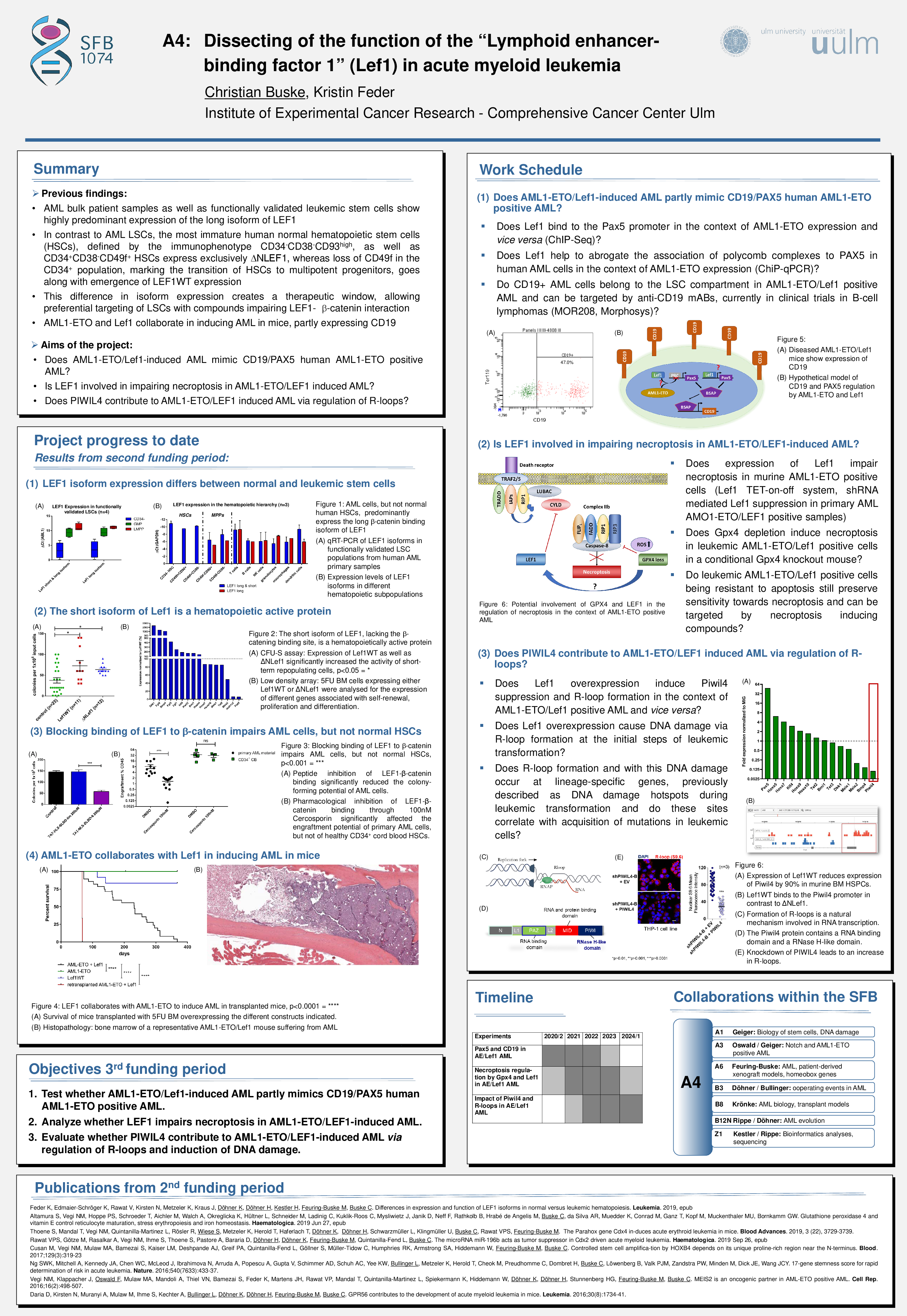Project A4: Dissection of the function of the "Lymphoid enhancer-binding factor 1" (Lef1) in acute myeloid leukemia
Principal Investigator
Prof. Dr. med. Christian Buske
Institute of Experimental Cancer Research
Comprehensive Cancer Center Ulm
Ulm University
James-Franck-Ring (N27)
89081 Ulm
Phone: 0731-500-65801
christian.buske(at)uni-ulm.de

Summary
The “Lymphoid Enhancer-binding Factor 1” (LEF1) was originally only known for its function in lymphoid development. Since the start of funding, we could demonstrate that LEF1 is a key factor for normal and leukemic stem cell behavior, particularly that aberrant expression of Lef1 induces AML in mice. In this funding period, we could demonstrate that the LEF1 isoform, which lacks ß-catenin binding activity (∆NLEF1), is exclusively expressed in human HSCs, but is virtually silenced in AML cells, and that in contrast to normal HSCs AML cells are vulnerable to approaches targeting ß-catenin/LEF1 interaction. In addition, we could show that the fusion gene AML1-ETO strongly collaborates with Lef1 in inducing partly CD19+ AML. Based on these data, the proposal aims at understanding the role of Lef1 in generating CD19+ AML in concert with AML1-ETO. As LEF1 has been described as a strong inhibitor of necroptosis in CLL, we will analyze whether LEF1 expression prevents necroptotic death in AML and whether targeting LEF1 will trigger necroptosis in this disease. Based on our observation that Lef1 significantly suppresses expression of the gene Piwil4 by 90% in murine BM HSPCs and that suppression of PIWIL4 in human AML cells induces massive R-loop formation, we will further test whether LEF1 is responsible for R-loop formation and DNA damage response at the early stages of myeloid transformation.
For a current list of all project-related publications, please go to this page

